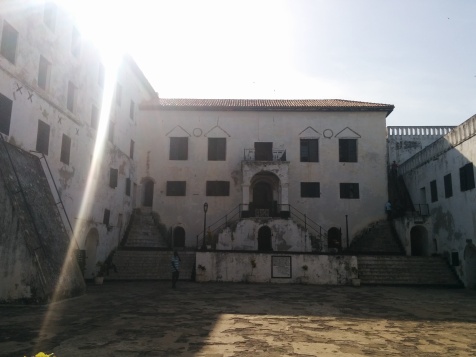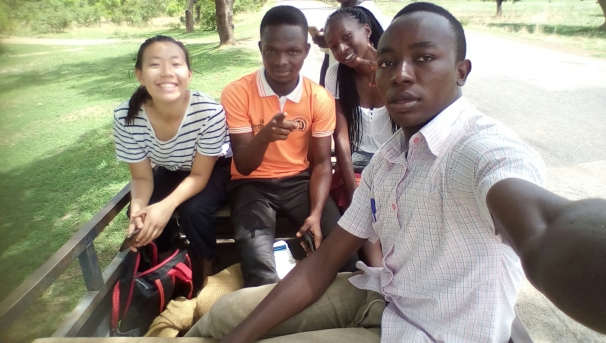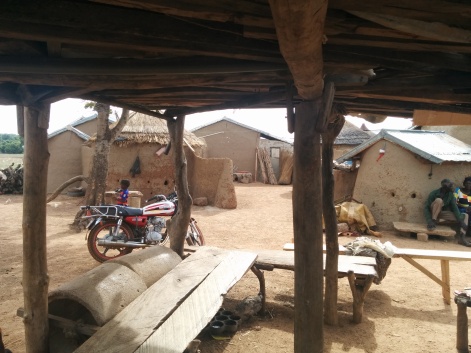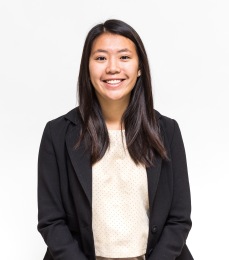I began my Uniterra placement with WUSC Ghana local offices in Accra, the capital city of Ghana. I stayed in the volunteer guesthouse where I was welcomed along with four other WUSC volunteers by our wonderful landlords, Jasper and Prof Kate. Along with my new friends, we travelled to Cape Coast where we visited the El Mina Castle, which used to be a slave centre owned by the Portuguese in the past. The tour guide took us through the female quarters and the stench was still heavy in the air. This visit gave me a different and deeper understanding of Ghana history. It is a culturally diverse country with 5 major ethnic groups and there exists about 77 languages and dialects.

The next week, two other volunteers and I arrived in Tamale after a 12-hour drive. Tamale is definitely a city similar to Accra, but on a smaller scale with better roads. During this time, WUSC, local University of Development Studies instructors and students, and two partner NGOs gathered to organize the research project that my mandate was a part of. We went through all the research objectives and the questions for the individual interviews, focus group discussions, and key informant interviews as a large group. The goal of the research project is, in general, to find out more information on the management practices of guinea fowl. Guinea fowls are native to Ghana, and it is reared in the Northern part of the country, where the bird is prevalent. Besides being simply a meat dish just like poultry, there is also a demand for guinea fowl due to its role in special occasions and traditional customs. Through this collaborative workshop with the different partner organizations, I was able to observe many different ways of thinking. By engaging and listening in on discussions about research methods, gender equity, sexual harassment, and seeing the interactions between Ghanaian instructors and students I have been able to learn and appreciate the differences between cultures. The next week I left with the other UDS students, who are a part of my field research team, to go to Bolgatanga, which is about a 2.5-hour drive north of Tamale. We settled in with TRAX Program Support, who is one of our local NGO partners that collaborate with us on this project. It was then that it was decided that 2 of the 3 districts are too far to commute to daily so they wanted to send us off for two weeks at a time.

I have been spending a lot of time in rural communities, meeting different actors within the guinea fowl market value chain and also wandering around and visiting the local markets. It has been interesting to experience the language barriers when conducting our interviews – oftentimes there is even an extra interpreter between the Ghanaian student and the farmer. The roads are unpaved and dusty and our main mode of transport to and from these communities is called “motorkings”. Practicing development work on the field and observing the theories and qualms we learn in the classroom in real life has been a very interesting experience for me. My whole Ghana experience thus far has been full of challenges and I continue to learn every day!


Josephine is a student in the 5th Cohort of the Master’s of Development Practice Program. Her research interests include environmental economics, ecosystem services, global health, biodiversity, climate change and mental health.
